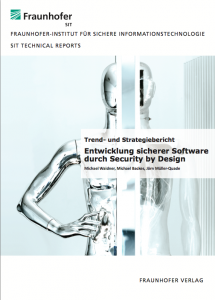 At CCS 2013, we will be giving a tutorial on instrumenting Android apps to enhance their security. You are most welcome to attend! From the abstract:
At CCS 2013, we will be giving a tutorial on instrumenting Android apps to enhance their security. You are most welcome to attend! From the abstract:
Novel types of malware on mobile devices have raised researchers interest in implementing static and dynamic techniques for detecting and mitigating malicious behavior of mobile applications. In this hands-on tutorial we will demonstrate and explain different techniques for instrumenting Android applications using the Aspect Bench Compiler (abc) and the program analysis and transformation tool Soot. Through high-level abstractions such as AspectJ aspects and Tracematches, abc supports a declarative style of instrumentation that lends itself to the rapid prototyping of at least simple instrumentation schemes. Soot supports instrumentation in an imperative style, which requires more work but allows more fine-grained control. Both abc and Soot are inter operable, as they instrument the same intermediate program representation. Furthermore, as we show, both can be easily integrated with static program analyses that can be used to specialize instrumentation schemes based on additional information extracted from the static structure of the instrumented app.
In September, Steven Arzt and Siegfried Rasthofer will be giving a similar tutorial at RV 2013.

